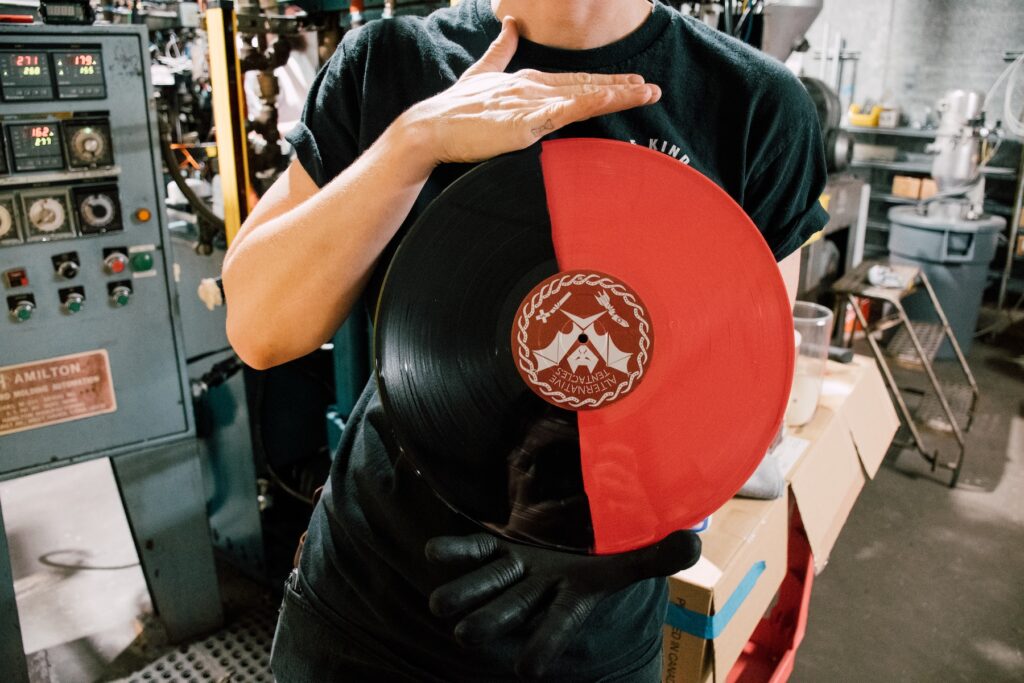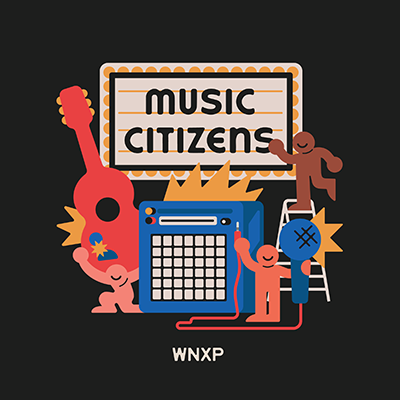
Vinyl records have made a big comeback in recent years, and the companies making them are in a fierce battle over market dominance.
WNXP’s Music Citizens in-depth reporting series takes up this battle in Episode 2, “The Operator.” It tells the story of Piper Payne, a scrappy, independent record manufacturer who opened up in Smyrna in the middle of the recent vinyl boom, and checks in on producers like The Vinyl Lab and United Record Pressing — as well as the biggest new player in the local market: Nashville Record Pressing.
More: The Operator
In the wake of the local reporting, WNXP’s Justin Barney shared highlights with NPR Morning Edition. You can hear the story above and follow along with the transcript below.
A MARTÍNEZ, HOST: Record stores around the country are offering special releases this week for what they call Record Store Day Black Friday. It’s all part of a billion-dollar vinyl music industry that’s been growing steadily for nearly two decades. Now the U.S. manufacturers that press the vinyl to make the records are facing a giant competitor from abroad. Here’s Justin Barney with member station WNXP in Nashville.
(SOUNDBITE OF MACHINERY)
PIPER PAYNE: We just started up the boiler, so we’re going to go check on it.
JUSTIN BARNEY: Piper Payne opened a record manufacturing plant two years ago just outside of Nashville. She bought eight old pressing machines and put them to work.
PAYNE: In a record plant, remember, everything is hot and is trying to burn you or knock you on the head or cut you or trip you.
BARNEY: Yes.
PAYNE: So just keep your head on a swivel.
BARNEY: Cool.
PAYNE: That’s hot.
BARNEY: Over the past decade, the number of plants like this has grown from about 30 to over 200. That’s according to the Vinyl Manufacturers Association. Piper’s Company, Physical Music Products, is part of that surge.
PAYNE: I literally drained my own life savings to get this plant off the ground.
BARNEY: The reason for the boom in vinyl manufacturing is the boom in vinyl.
(SOUNDBITE OF MUSIC)
BARNEY: Let’s go back to 2007. The CD was dying and streaming was becoming the norm, but there was still a desire and a niche market for physical music. That’s when Record Store Day launched, putting a holiday around the buying of vinyl. Sales started to go up year over year. And then in the 2010s, Walmart and Target started stocking vinyl records. And then the pandemic.
UNIDENTIFIED PERSON: Adele’s new album isn’t even out yet, but pressing plants are hard at work to meet the skyrocketing demand.
BARNEY: As heard in that MC News (ph) clip, people bought a ton of records. In 2021, vinyl revenue hit a billion dollars, and presses had a hard time keeping up.
MARK MICHAELS: Our backlog was probably 18 months, maybe more. There was plenty, plenty of work.
BARNEY: Mark Michaels is the head of United Record Pressing, the oldest record pressing plant in the country at 75 years old, and it’s also based in Nashville.
MICHAELS: Lots of plants popped up, and big plants expanded. We did, too.
BARNEY: They caught up to the demand with high-tech new machines encased in glass that are able to press out records much more efficiently. But vinyl manufacturers say that the biggest change in production is the fact that the largest vinyl company in the world expanded to North America. GZ Media, based in the Czech Republic, opened up a brand-new plant in Nashville two years ago. It is called Nashville Record Pressing and Drake Coker is the CEO.
DRAKE COKER: I get it. It makes sense, right? Like, it’s frightening to have motivated, capable, active competitors.
BARNEY: GZ Media is motivated and capable. They can now press 144 million records a year. For context, United Record Pressing makes 9 million records a year. Coker has no reservations about his goal to dominate the American market, where vinyl is now on every artist’s merch table.
COKER: Why endeavor to do something if you’re not, like, making an effort to be the best and the biggest and the strongest and with the broadest reach and the most profitable and all those things, right?
BARNEY: He compares his goals to survival of the fittest. Other vinyl manufacturers in the United States, they’re worried about GZ putting them out of business, including Mark Michaels of United Record Pressing.
MICHAELS: The industry probably won’t have 200 manufacturers 10 years from now.
BARNEY: In the meantime, record sales continue to climb, though not as steeply as they did during the pandemic.
For NPR News, I’m Justin Barney in Nashville.
(SOUNDBITE OF MUSIC)


